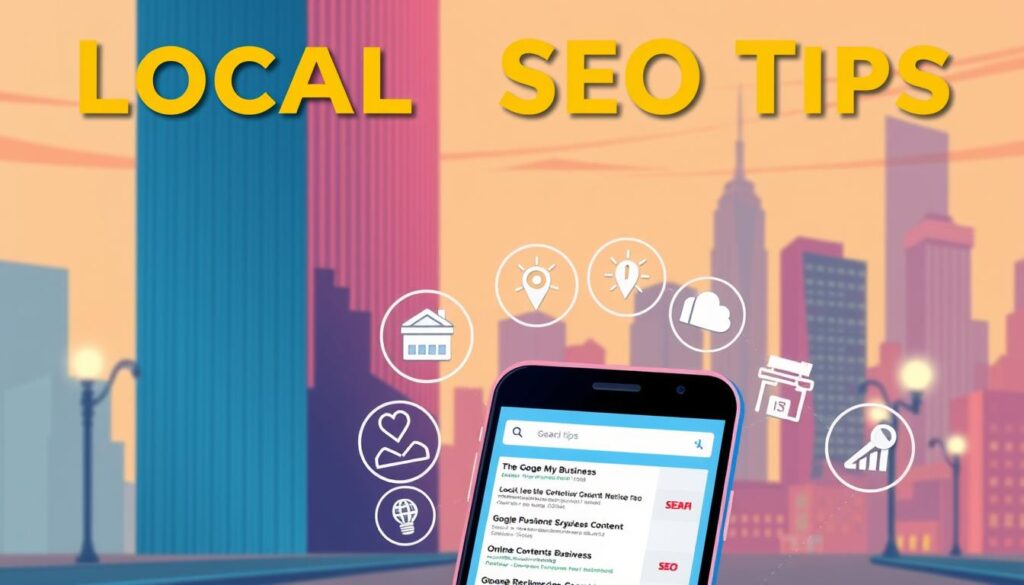In today’s fast-paced digital landscape, selecting the right marketing automation software is crucial for agencies aiming to streamline operations and enhance efficiency. These tools not only save time but also improve campaign performance, allowing your team to focus on strategic initiatives. By automating repetitive tasks, you can allocate more resources to creative problem-solving and client relationships.
Marketing automation has become indispensable for modern agencies seeking to scale without increasing overhead. It provides valuable data insights, enabling better decision-making and more effective campaigns. Drawing from industry experts like Luke Strauss, this section explores how the right automation tools can transform your agency’s operations.
Whether you’re looking to optimise workflows or customise processes, the correct software can make all the difference. This introduction sets the stage for a deeper dive into the benefits, integrations, and customisation options available in the world of automation.
Key Takeaways
- Marketing automation software is essential for streamlining repetitive tasks and improving efficiency.
- Selecting the right tool can save time and enhance campaign performance.
- Automation provides valuable data insights for better decision-making.
- It supports agencies in scaling operations without additional overhead.
- Industry experts highlight the transformative impact of automation tools.
For more insights on top marketing automation platforms, visit our blog post on the subject.
Understanding Marketing Automation for Agencies
Marketing automation is a powerful tool designed to help agencies streamline their operations and improve efficiency. It allows businesses to automate repetitive tasks such as email scheduling, social media posting, and client segmentation, freeing up more time for strategic initiatives. By leveraging automation, agencies can focus on building stronger client relationships and delivering more effective campaigns.
Definition and How It Works
Marketing automation refers to the use of technology to automate and manage marketing processes. It works by using algorithms to handle tasks such as drip campaigns, lead scoring, and social media management. These tools are designed to make your business operations more efficient, allowing you to allocate resources to more critical areas.
Standard vs Machine Learning Automation
Standard automation relies on predefined rules to execute tasks, while machine learning automation uses AI to adapt and improve over time. For example, standard automation might send a follow-up email after a certain period, whereas machine learning automation could predict the best time to send an email based on customer behavior. This makes machine learning automation more dynamic and effective in delivering personalized experiences.
For more insights on how to leverage marketing automation, visit our blog post on the topic.
Key Benefits of Marketing Automation Tools for Agencies
Discover how marketing automation tools can revolutionise your agency’s operations. By streamlining tasks and enhancing communication, these tools offer tangible benefits that drive growth and satisfaction.
Time-saving and Increased Efficiency
Automation tools significantly reduce the time spent on repetitive tasks. For instance, social media scheduling and email follow-ups can be handled effortlessly, allowing your team to focus on more strategic activities.
Enhanced Client Communication and Satisfaction
Personalised client interactions become easier with automation. Whether it’s tailored email campaigns or timely notifications, these tools ensure consistent and relevant communication, boosting client satisfaction.
Scalability and Sustainable Growth
As your agency grows, automation tools adapt to handle increased demands. They ensure smooth workflows and consistent delivery, supporting sustainable growth without overwhelming your team.
Reviewing marketing automation software for agencies
Choosing the right tool for your agency is vital to enhance efficiency and performance. This section provides an in-depth look at top platforms, helping you make an informed decision.
In-depth Product Analysis
HubSpot and ActiveCampaign are leading platforms known for their robust features. HubSpot excels in CRM integration and advanced analytics, while ActiveCampaign offers superior email marketing capabilities. Both tools support complex automation workflows, making them ideal for scaling operations.
Customised Features Comparison
When comparing features, consider factors like email marketing, campaign management, and integration capabilities. HubSpot offers extensive third-party integrations, whereas ActiveCampaign provides user-friendly campaign builders. Understanding these differences helps tailor the tool to your agency’s needs.
- Assess platforms based on strengths and integration options.
- HubSpot and ActiveCampaign offer distinct advantages in CRM and email marketing.
- Consider campaign management and reporting features for efficiency.
By evaluating these aspects, you can select a platform that aligns with your agency’s goals, ensuring optimal performance and client satisfaction.
Comparing Key Automation Platforms and Their Integrations
When evaluating automation platforms, integration capabilities are crucial for seamless workflow and enhanced performance. Leading platforms offer robust integrations with CRM systems, email marketing tools, and social media platforms, ensuring a cohesive digital strategy.
Integration Capabilities Across Systems
Top automation platforms integrate effortlessly with tools like Salesforce and HubSpot for CRM, and Mailchimp for email marketing. These integrations enable a unified data flow, crucial for consistent customer engagement and efficient lead management.
Supported Third-party Tools and Customisation
Beyond standard integrations, many platforms allow customisation to fit your agency’s needs. Whether it’s tailoring email campaigns or refining client communication, these tools adapt to your processes, ensuring personalised content delivery and consistent campaign execution.
For more insights on how automation platforms integrate with third-party tools, visit our resource page on the topic.
Expert Insights and User Experiences
Real-world success stories and expert opinions offer valuable insights into how agencies have harnessed automation tools to drive growth. By examining these examples, you can gain practical knowledge on how to optimise your own strategies.
Case Study Highlights and Real-world Results
Agencies that have adopted automation report significant improvements in efficiency and client satisfaction. For instance, a UK-based digital agency reduced their campaign setup time by 40% after implementing automation tools. This allowed them to allocate more resources to creative tasks and client relationships.
Another case study highlights how a media agency automated over 60% of their repetitive tasks, freeing up 20 hours per week for strategic planning. These metrics demonstrate the tangible benefits of automation in real-world scenarios.
Expert Opinions and Optimisation Tips
Experts like Yanira M. Castro and Rodrigo Campos emphasise the importance of selecting tools with features that align with your agency’s specific needs. They suggest focusing on platforms that offer customisable workflows and robust integration capabilities to maximise efficiency.
- Agencies have reported a 30% reduction in time spent on manual tasks.
- Expert-recommended features include advanced analytics and CRM integration.
- Customisable email campaigns have boosted client engagement by 25%.
By leveraging these insights and implementing the right tools, your agency can achieve similar success, driving growth and enhancing client satisfaction.
Customising Automation Workflows for Your Agency
Customising automation workflows is key to aligning your tools with your agency’s unique needs. By tailoring these workflows, you can ensure that every process, from managing campaigns to handling client relationships, runs smoothly and efficiently.
Tailouring to Your Internal Processes
Your agency’s internal processes are unique, and your automation workflows should reflect that. Start by mapping out your current workflows to identify areas where automation can add the most value. For instance, if your team spends a lot of time on repetitive tasks like data entry or email follow-ups, automating these can free up valuable time for more strategic work.
When setting up your workflows, consider how they integrate with your existing CRM and management systems. Seamless integration ensures that data flows consistently across all platforms, reducing errors and improving efficiency. Many automation tools offer customisable templates that you can adapt to your specific needs, making it easier to maintain consistency across your operations.
Ensuring Consistent Campaign Delivery
Consistency is crucial when it comes to delivering successful marketing campaigns. By aligning your automation workflows with your CRM and management systems, you can ensure that every campaign is delivered on time and meets your quality standards. Customisable email campaigns, for example, allow you to personalise content for different client segments, boosting engagement and satisfaction.
Regularly review and adjust your workflows to keep them aligned with your agency’s goals. This might involve refining campaign parameters, updating client segmentation criteria, or integrating new tools to enhance functionality. By staying proactive, you can ensure that your automation workflows continue to support your team’s efficiency and campaign performance.
| Workflow Aspect | Customisation Options | Benefits |
|---|---|---|
| Campaign Management | Custom email templates, client segmentation, timing adjustments | Improved client engagement, personalised content delivery |
| Team Collaboration | Task assignment, real-time updates, role-based access | Streamlined communication, reduced miscommunication |
| Client Communication | Automated follow-ups, custom notifications, feedback loops | Enhanced client satisfaction, consistent interactions |
| Performance Tracking | Custom analytics dashboards, real-time reporting, KPI setting | Data-driven decision-making, performance optimisation |
| Integration Capabilities | CRM integration, third-party tool connections, API access | Seamless data flow, enhanced functionality |
By tailoring your automation workflows to your agency’s unique processes, you can enhance team efficiency, ensure consistent campaign delivery, and improve overall performance. Remember to regularly review and adjust your workflows to keep them aligned with your goals and client needs.
Boosting Agency Performance Through Data and Analytics
Data and analytics are the backbone of modern agency success, providing the insights needed to make informed decisions and drive growth. By leveraging advanced tracking and reporting tools, you can uncover actionable information that enhances your strategies and delivers measurable results.
Tracking and Reporting Benefits
Advanced analytics tools like AgencyAnalytics and HubSpot offer comprehensive tracking and reporting features. These tools enable you to monitor campaign performance in real-time, allowing your marketing team to stay agile in a competitive landscape. Custom reporting capabilities provide clear, actionable insights, helping you identify areas for improvement and optimise your content marketing strategies.
Leveraging Real-time Data Insights
Real-time data insights are invaluable for making timely decisions. Interactive dashboards provide a visual representation of key metrics, assisting your marketing team in understanding campaign outcomes and adjusting strategies accordingly. For example, real-time reporting tools can show which content marketing efforts are driving the most engagement, enabling you to allocate resources more effectively.
- Advanced analytics help monitor campaign performance and keep your agency agile.
- Custom reporting delivers actionable insights for continual improvement.
- Interactive dashboards provide real-time data to inform decision-making.
By harnessing the power of data and analytics, you can drive your agency’s performance, make informed decisions, and achieve your goals more effectively.
Practical Considerations When Implementing Automation
When implementing automation tools, there are several practical factors to consider to ensure a smooth transition and maximum effectiveness. Setting a realistic budget, prioritising features, and evaluating usability are crucial steps in this process.
Setting a Budget and Prioritising Features
Start by setting a realistic budget for your automation investments. Consider not only the initial cost but also potential scalability. Prioritise features that align with your agency’s needs, such as ease of use, robust support, and seamless integrations. Focus on tools that offer customisable reports and landing page management to streamline your processes.
- Set a budget that balances cost and scalability.
- Prioritise features that align with your operational needs.
- Consider tools that offer customisable reports and landing page management.
Evaluating Usability, Support, and Integrations
Evaluate the usability of the platform to ensure it is user-friendly for your team. Look for robust support options, such as 24/7 customer service or extensive documentation. Check the tool’s integrations with your existing systems, including CRM and communication channels, to ensure a smooth workflow.
- Ensure the platform is user-friendly for your team.
- Look for robust support options, such as 24/7 customer service.
- Check for seamless integrations with your existing systems.
For more insights on how to choose the right PPC agency, visit our resource page on the topic.
Conclusion
In conclusion, implementing effective automation tools can significantly enhance your agency’s performance and client satisfaction. By focusing on data-driven decision-making and robust customer service, you can create tailored strategies that resonate with your target audience.
Using advanced analytics, you gain valuable insights into campaign performance, enabling you to refine your approach and deliver more impactful results. Regularly reviewing and adjusting your workflows ensures they remain aligned with your goals, fostering consistent communication and improved outcomes.
Considering the strategic value of these tools, now is the time to explore how they can transform your operations. For deeper insights into how email marketing agencies can elevate your engagement, visit our resource page. Start leveraging automation today to streamline processes, enhance client relationships, and drive sustainable growth.
FAQ
How can marketing automation improve my email campaigns?
It streamlines email workflows, personalises content, and ensures timely delivery, boosting engagement and conversions.
Can I manage social media through automation tools?
Yes, automation platforms allow scheduling, monitoring, and analysing social media activities, saving time and enhancing consistency.
How does automation integrate with my existing CRM system?
Most platforms offer seamless CRM integration, syncing contacts, leads, and client data to automate workflows efficiently.
What workflow management features are available?
Automation tools offer task assignments, progress tracking, and real-time notifications, ensuring smooth team collaboration and process management.
Can automation help generate more leads for my agency?
Absolutely, by nurturing prospects through personalised campaigns and scoring leads based on engagement, automation drives higher conversion rates.
How do I create effective landing pages with automation?
Templates and customisation options help design landing pages that align with campaigns, capturing leads and converting visitors effectively.
What reporting features are available to track performance?
Detailed analytics and custom reports provide insights into campaign success, audience engagement, and ROI, aiding data-driven decisions.
Can I manage multiple client accounts with automation software?
Yes, multi-client management features allow separate campaign tracking, reporting, and customisation for each client, ensuring tailored services.
What is the difference between standard and machine learning automation?
Standard automation uses pre-set rules, while machine learning adapts and improves processes based on data patterns and outcomes over time.










